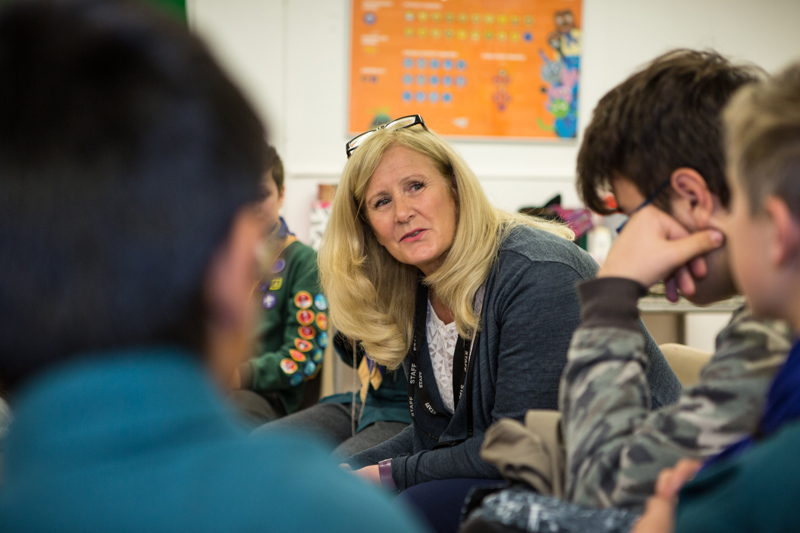Volunteers' Responsibilities
Although families or schools will usually be the first port of call for many of the issues that young people face, it may be that a volunteer finds themselves needing to discuss some of these issues.
It is the responsibility of the volunteer to promote safe and responsible living and point anyone who asks for help in the direction of expert advice when necessary. They will also need to appreciate different cultural or religious sensitivities in such situations.
Safeguarding Training
This Safeguarding training's designed to help you stay up-to-date on safeguarding practice and your responsibilities as a member of Scouts.
Take the trainingDefinitions of abuse
Grooming can be involved in most types of abuse of a young person by an adult, who will often try befriending a young person in order to cause them harm.
Read about grooming and different types of abuseDigital Safeguarding
The guidelines set out in this document are to help Leaders and other adults ensure that we make the best use of new technologies, while protecting both the young people in our care and preventing ourselves from being placed in a vulnerable position.
Read the guidelinesAnti-Bullying
It's the responsibility of all adults in Scouts to help develop a caring and supportive atmosphere, where bullying in any form is unacceptable.
Learn more about anti-bullyingPromoting positive behaviour
Adults in Scouting have an important role in supporting young people to manage their own behaviour and make positive choices.
Read about behaviour
We have produced a number of a webpages dealing with life issues, along with a list of links to external resources. For general advice on issues facing young people please contact Childline or its parent charity NSPCC.
The Yellow Card
Every adult should have a copy of the Young People First code of practice. It is designed so you can keep it with you at all times during Scouting activities.
Read the Yellow Card